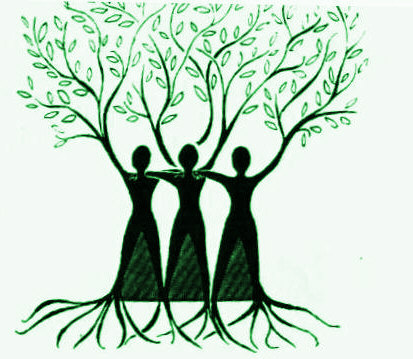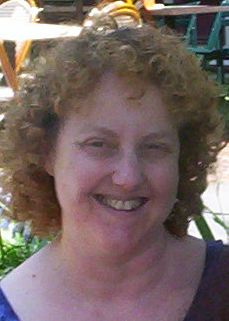|
Self
Empowerment: Actualizing the Power Within
© by Judy Lightstone
2002
******************************************************

To
experience empowerment we must act on a sense of self worth, value and give
voice to our own needs, and give equal validity to our own needs as to others'.
As we develop a sense of empowerment, we begin to discover that a conflict of
needs actually can present us with a creative challenge to imagine solutions
that can empower all parties involved (rather than fearing that a conflict of
needs must necessarily result in a "win-lose" battle). I offer the following
vignette as an example:
Mary does child care
every night so John can go out with the "boys". Mary becomes more and more
resentful of John and their young children. Finally, Mary initiates an
assertive "conflict". She says:
"I understand that you
work hard all day and need time in the evenings to relax and unwind, but I've
never pointed out to you that for you to relax and unwind by going out every
night, you are counting on me to stay home with the kids, which is what I do
all day. So I don't get to relax and unwind and I become more resentful
toward you and the kids and unpleasant to be around. I need escape time too.
I'd like us to work out a way that we can both get what we need."
John agreed that Mary
had become very unpleasant to be around (and didn't hesitate to tell her so.)
But after a number of arguments, they came around to agreeing on an
experiment. The experiment was that once a week John would go out while Mary
watched the children, once a week Mary would go out while John watched the
children, and once a week they both went out while Mary's mother watched their
children. The other two evenings they all stayed home as a family. After two
weeks of this experiment, not only did Mary feel better, but John felt better
as well because he was feeling closer to his children and getting less
resentment from his wife--and he still had time to see his friends.
The
word "compromise" does not adequately describe the process of creating a
"win-win" solution. Compromise implies that neither side really gets what they
want, whereas in "win-win" solutions, both sides get as much if not more than
they wanted originally. Assertiveness means acting from a place of respect –
for self and other – and assuming equal value to the needs of self and other.
This presents many dilemmas that can also be seen as possibilities. Power--the
power of creative problem solving and acting--is mobilized rather than
suppressed.
Power
Traditionally power has
meant different things for men and women, taking on more positive connotations
for men. Think of the following words, first for men and then for women. Pay
attention to the feelings they evoke:
Men Women
Powerful Powerful
Aggressive Aggressive
Forceful Forceful
Ambitious
Ambitious
Assertive
Assertive
Competitive Competitive
Expert Expert
Authoritative Authoritative
When women think of asserting our power, some of us have many negative
associations and blocks to overcome. I believe there are two good reasons for
these blocks:
1. Women have traditionally been expected to defer to men, and have internalized
the dominant cultural expectations of females as submissive and powerless
and
2.
There is something wrong with the present system of power distribution for all
people, which we, as women, may be particularly sensitive to, having so deeply
learned to respect the importance of other people's needs.
As
we endeavor to compete with men as their equals, some of us feel there is
something sour about climbing up a ladder on top of other worthy people's heads,
something deceitful about the notion of inferiority and superiority in our
fellow human beings. We see that to gain others must lose, and having been
relegated to losing for thousands of years, we may not feel comfortable inducing
that experience in others.
When some people have less power than others do because external forces (e.g.
money, status, physical strength, military force) block them, many problems
arise for both the "winners" and the "losers". The "losers" become afraid to
express their needs because they fear (often rightfully) that what little they
have will be taken from them. They then become afraid to even feel their needs,
to admit to themselves that they want something. They become immobilized. And,
in certain critical ways, they stop growing; cease to thrive; development (the
Power from Within) is blocked. The "winners" then miss out on the experience of
sharing with equals and become self-preoccupied. Their development is also
blocked.
Let's consider these questions:
1. How do we reclaim our rights to power and effectiveness in the world without
doing so at the expense of others?
2. How can we, as women, integrate the profound knowledge we gain from
mothering and being nurtured by our mothers -- i.e., that we are each special,
unique, and worthy in our own right, into a culture where value is so often seen
in material terms?
We
may want to begin by developing our own vocabulary to describe our experiences
and perceptions. Without words to communicate our experiences, we are trapped
and limited. If power only means the power to force others to do our will, we
will feel that power is foreign to us, awkward and unfamiliar. But power means
many things, and many aspects of power can feel right for us.
I
offer the following words and phrases to begin reclaiming our own vocabulary
taken from Simos 1987 - (see below*)
Power
Over: the
ability to force others to do your will through physical or financial coercion.
The power inherent in social or economic positions, or physical size or
strength, regardless of skill or ability.
Shared
Power: power
whose goal is to uplift or teach others to bring them to parity, as with a
parent/child, teacher/student, or psychotherapist/client relationship
Referred
Power: the
power others give us because they value, respect, and/or are attached us
Expertise
Power: the
power others give us because they count on our knowledge and judgment
Power
With: the
power to be effective interpersonally, to persuade, to inspire (not “command” or
force) respect
Power From Within:
the power of growth and development inherent in all living things. It is the
power to change, to overcome obstacles, to face our own fears, to learn new
skills, to fail, and to try again.
Power can be used to destroy or create, to belittle others and over-inflate the
self, or to belittle the self and over-inflate others. We may call the use of
power to harm or belittle the self passive power, and to harm or belittle others
aggressive power. In contrast, assertiveness can be seen as the use of power to
enhance and respect both self and other. Assertiveness training, then, can be a
way for women to reclaim their rights to power and effectiveness in the world
without doing so at the expense of others.
Recommend this on Google Plus
*
new vocabulary words taken from Miriam Simos (Starhawk) Truth or Dare, Harper &
Row Publishers, New York, 1987
Suggested
Reading
Jean Baker Miller, M.D. (1976). Toward a New Psychology of Women. Boston:
Beacon Press
Pamela Butler (1981) Self-Assertion for Women. New York: Harper & Row
Publishers
Margaret McIntosh () Feeling Like a Fraud a Work In Progress Paper of the
Stone Center for Developmental Studies at Wellesley College, Wellesley, Mass.,
02181
Miriam Simos (Starhawk) (1987) Truth or Dare. New York: Harper & Row Publishers
About Judy Lightstone, PhD, MA,
MS, New Zealand Registered Psychologist
 Judy
has been offering psychotherapy, training, and supervision for the
past 25 years. She has a Ph.D. with a specialism in Trauma
Psychology and two Masters degrees, Counselling and Marriage and
Family Therapy. In her Auckland New Zealand and online supervision
and consulting practice, she specialises in training therapists to
work with abuse survivors and with people with eating problems. She
is a NZ Registered Psychologist #90-03237, a California Provider of
Continuing Mandatory Education #PCE 3370, a Certified EMDR Provider
of Continuing Education, and a California Licensed Marriage and
Family Therapist #MFC32570. Post graduate studies included EMDR from
Francine Shapiro (founder of EMDR), Feminist Relational Therapy for
Eating Problems with Susie Orbach (author of Fat is a Feminist Issue
and Hunger Strike) and others at the Women's Therapy Centre
Institute in New York City; and Somatic therapy from Pat Ogden
(founder of Sensorimotor Psychotherapy). She has just published a
chapter in the book EMDR Solutions II on integrating EMDR, Somatic
and Ego State Therapy approaches in the healing eating problems, and
has published an article on Compulsive Eating and Dissociation in
the International Journal of Trauma and Dissociation. She developed
and teaches an integration of the above approaches PsychoSomatic
Integration (PSITM ). Judy
has been offering psychotherapy, training, and supervision for the
past 25 years. She has a Ph.D. with a specialism in Trauma
Psychology and two Masters degrees, Counselling and Marriage and
Family Therapy. In her Auckland New Zealand and online supervision
and consulting practice, she specialises in training therapists to
work with abuse survivors and with people with eating problems. She
is a NZ Registered Psychologist #90-03237, a California Provider of
Continuing Mandatory Education #PCE 3370, a Certified EMDR Provider
of Continuing Education, and a California Licensed Marriage and
Family Therapist #MFC32570. Post graduate studies included EMDR from
Francine Shapiro (founder of EMDR), Feminist Relational Therapy for
Eating Problems with Susie Orbach (author of Fat is a Feminist Issue
and Hunger Strike) and others at the Women's Therapy Centre
Institute in New York City; and Somatic therapy from Pat Ogden
(founder of Sensorimotor Psychotherapy). She has just published a
chapter in the book EMDR Solutions II on integrating EMDR, Somatic
and Ego State Therapy approaches in the healing eating problems, and
has published an article on Compulsive Eating and Dissociation in
the International Journal of Trauma and Dissociation. She developed
and teaches an integration of the above approaches PsychoSomatic
Integration (PSITM ).
For more information, link to: CURRICULUM
VITAE
|
For Self Empowerment
Counselling in Auckland click hereAlso link to articles on:
Overcoming
Powerlessness;
Sharing Power in the Family;
Fat,
Thin and Power; Trauma Survivors Treatment
Page; Improving Body Image
Sign
My Guestbook View
My Guestbook
View
My Guestbook

|